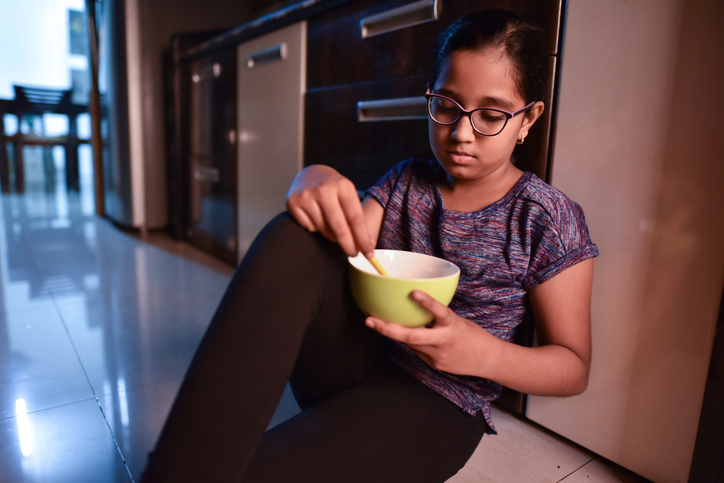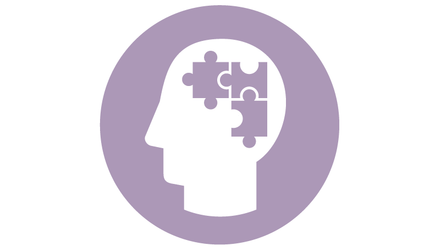Registered Dietitian Fareeha Jay discusses how fasting during Ramadan can affect those with eating disorders.
Ramadan is the ninth month of the Islamic calendar. It is the holiest month and observed by Muslims worldwide. During Ramadan Muslims fast all through the month from dawn to dusk. Drinking liquids, smoking, and engaging in sexual activity are all prohibited during the fast as well. Contrary to popular belief, Ramadan is not just about fasting. It is also the month where Muslims focus on their connection with God, through praying and reflection. They try to spend quality time with their friends and family and empathise with those who are less fortunate.
Fasting is obligatory for Muslims. Most Muslims across the globe are extremely diligent in fasting in the month of Ramadan, however there are exceptions:
- Those who are ill
- Pregnant/ nursing mothers / or during menstruation
- Travellers
- Young children
- Elderly
An eating disorder (ED) is a mental illness where people use eating behaviours to cope with difficult situations. Anyone can be affected by this disorder - people of all ages, ethnicities, and backgrounds.1 There are different types of eating disorders, the most common being anorexia nervosa, binge eating disorders, and bulimia.2

It is very rarely discussed, but Ramadan can be extremely challenging both mentally and physically for someone with an eating disorder. Whilst there is a growing awareness with regards to not fasting due to physical health problems, there is a lack of awareness when it comes to fasting for those with mental health problems.
Mental illness is a taboo topic anyway so if a person, due to their illness, decides not to fast they are then further stigmatised.3 Not fasting due to a mental disorder is seen as a weakness in that person’s faith. This can be extremely debilitating for people who are seeking support. Often Muslims with the disorder come to believe that their disorder is not legitimate, and they feel guilty and ashamed of not fasting.
Fasting has also become a part of the Muslim culture, where it’s used as a gauge to assess a person’s religiosity. It has been turned into a cultural burden, where every person is required to fast, no matter what their health conditions are. If a person chooses not to fast for a reason beyond their control, they are made to feel as less of a Muslim and as someone who is betraying their faith. This social and cultural pressure results in many people fasting in Ramadan when it's hazardous to their health.
Eating disorders considered culturally bound
Eating disorders are considered "culturally bound" because they are thought to be less prevalent among the ethnic minorities. However, this is only a belief and there are studies suggesting that people from all cultures and ethnic backgrounds are affected by this illness.
A literature review on eating disorders in the Arab world suggested that individuals at high risk for eating disorders range from 2% to 54.8%.4 An epidemiological study of eating disorders in Iran concluded that the prevalence of eating disorders in Tehran was comparable to the prevalence reported by studies in the West.5 Therefore, this belief is a myth which can only be debunked by creating awareness around mental health illnesses among the Muslim communities.
Acculturation leading to conflict
Acculturation also has an impact on eating disorders. The clash between traditional and adopted culture may contribute to the aetiology of eating and body image disturbances in susceptible individuals.6 Observations from several studies show that intrafamilial and intracultural conflicts may lead to internal conflicts amongst those who are trying to establish their cultural and psychological identity.7
Challenges with ED during Ramadan
Fasting can trigger ED
Fasting may trigger a relapse. Not eating is normal and not frowned upon. It is the perfect opportunity to conceal eating disorders and even helps them flourish. A person with ED can easily slip back into their disordered behaviours.
Fasting can mask ED
The biggest challenge for many is that they find this as the best opportunity to mask their eating disorder with the veil of dedication to faith. They constantly have a dialogue with themselves as this can be a gateway to their relapse and can put a strain on any improvements made during treatment of the disorder.
Celebratory meal
Iftar is a celebratory meal with a lot of food and varieties. People with bulimia may overindulge and then be compelled to get rid of all they’ve eaten; this may carry on for the whole month. People with anorexia might deprive themselves even more as not eating is normal and no longer frowned upon.
Communal eating
During Ramadan the focus is on communal eating with friends and family both at suhoor (meal before dawn) and iftar (meal at dusk). Someone with ED has to face public eating - making eating extremely difficult, making themselves conscious and thinking that they are being judged.
Tips for Dietitians supporting patients and clients with ED during Ramadan
- Give people the knowledge to understand that their eating disorder really is an illness, and they need to stop feeling ashamed and guilty about it.
- Involve an Imam who is well versed in mental health and social issues. They can then explain that fasting is only for healthy individuals. Reaching out to Imams and getting them involved in such initiatives might be difficult, but something we can endeavour to achieve.
- It is also stated in the Quran that if someone cannot fast due to illness, Fidyah can be given. Fidyah, or Fidya, is a donation of food or money and is used to help those in need. Paying this compensation still deems one to be a practising Muslim and participating in Ramadan.
- Discussions about Ramadan should be undertaken before it begins. Approach this topic with sensitivity, respect, and compassion. This will help them gain better understanding of what Ramadan means to them. Approaching the topic with all the background will lead to a more supportive discussion.
- Explain to patients and clients that they need to be kind and compassionate towards themselves. They shouldn’t fast because of family and peer pressure.
- Ramadan is the time for fasting as well as self-reflection, which can be used as an opportunity to think of ways about how to become a better person.
Tips for those with ED during Ramadan
People with ED can participate in the of holy month without fasting, but rather through other acts of worship as well.
- Connect with God. Read the Quran. Read its translation. Reflect and live by the lessons in the Quran.
- Help your local community. Volunteering for a local charitable cause or fundraising can be a very rewarding and fulfilling experience. Help those who are needy and less fortunate. Another way could be visiting the sick and elderly and being with them.
- Remember Allah and attend Taraweeh prayers. Spend more time in the remembrance of Allah (Dhikr). There are huge blessings and rewards in Taraweeh and, Tahajjud prayers (extra prayers).
If you decide to fast:
- Involve someone close to you, so they can provide support throughout Ramadan.
- Make sure that you stick to your individual diet plan or goals. Structure suhoor and iftar meals according to your needs and requirements.
- It's vital not to miss suhoor or iftar. Missing these will increase the risks of relapse.
- After the iftar meal, you might feel very full, and it can be a trigger to vomit or use laxatives. Remember that this feeling is expected.
Advice for the family:
- Family members of people with ED should avoid all critical remarks and comments.
- Include people with ED at suhoor and iftar even if they not fasting.
- Don't pressure them into eating too much food at suhoor and iftar.
- Don't force them into fasting.
- Don't make them feel bad if they are not fasting.
- Provide support to those with ED and understand that the month can be a trigger for them.
Lastly, a reminder for those who have this illness that it is extremely important to reach out for help. It is an illness and certainly not a sign of weakness.
Helplines and further reading
Ramadan & Eating Disorder Guide by Dr Omara Naseem and Dietitian Fareeha Jay
This resource provides guidelines on Ramadhan and Eating disorders. It also includes healthy meal ideas for Iftar and Suhoor.
Beat Eating Disorders
A helpline for adults and young people offering support and information about eating disorders.
Helpline: 0808 801 0677 / Youthline: 0808 801 0711/ Website www.beateatingdisorders.org.uk
Muslim Youth Helpline
An award-winning charity providing faith and culturally sensitive support to Muslim youth in the UK via their confidential helpline which is open 4 pm-10 pm seven days a week, 365 days a year including on Eid. The helpline provides support at the point of crisis for those that need emotional support and signposting.
Helpline 08088082008 / Email [email protected] / Website www.myh.org.uk
Muslim Women’s Helpline
Telephone Support as well as a text line, email, and webchat. They will support women of no faith as well as any faith, you do not have to be Muslim to access their support. Will provide listening support, help women in a crisis as well as providing information about legal rights.
Telephone 0800 999 5786 / Email [email protected] / Website www.mwnhelpline.co.uk
References
- NHS, (2021). Overview- eating disorders. Available at: https://www.nhs.uk/mental-health/feelings-symptoms-behaviours/behaviours/eating-disorders/overview/
- Beat, (2022). Types of eating disorder. Available at: https://www.beateatingdisorders.org.uk/get-information-and-support/about-eating-disorders/types/
- Ciftci, A., Jones, N., Corrigan, W. (2012). Mental health stigma in the Muslim community. Journal of Muslim mental health. Volume 7, Issue 1. Available on: https://quod.lib.umich.edu/j/jmmh/10381607.0007.102/--mental-health-stigma-in-the-muslim-community?rgn=main;view=fulltext
- M, Bernou., Beurs, E., Furth, E (2002) eating disorders in the Arab world: a literature review. Journal of eating disorders. Available at: https://jeatdisord.biomedcentral.com/articles/10.1186/s40337-020-00336-x
- Nobakht, M., Dezhkam, M. (2000) An epidemiological study of eating disorders in Iran, International Journal of Eating Disorders. Available at: https://pubmed.ncbi.nlm.nih.gov/10942912/
- Soh, N., Touyz, S., Surgenor, L. (2006) Eating and body image disturbances across cultures: A review. European Eating Disorders Review ,14, 54-65. Available at: http://brown.uk.com/eatingdisorders/soh.pdf
- Miller, M., Pumariega, A. (2001) Culture and eating disorders: A historical and cross cultural review . Available at: http://www.brown.uk.com/eatingdisorders/miller.pdf







